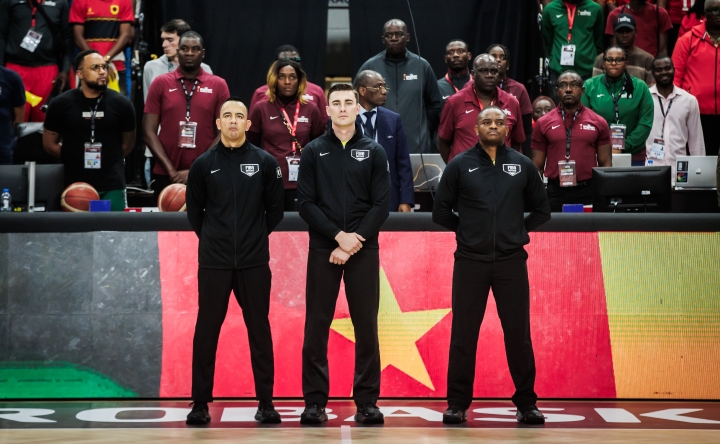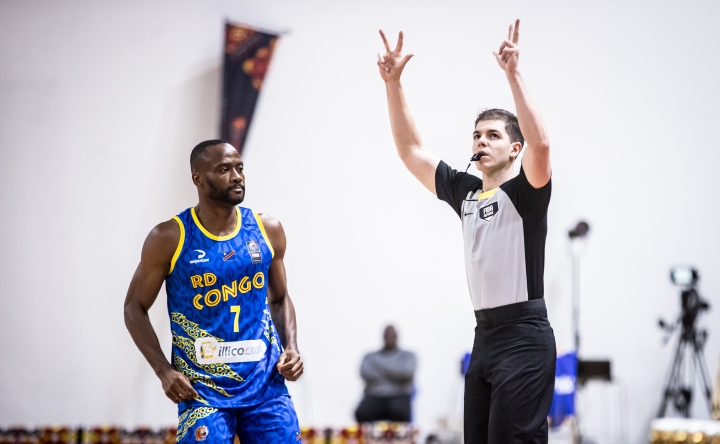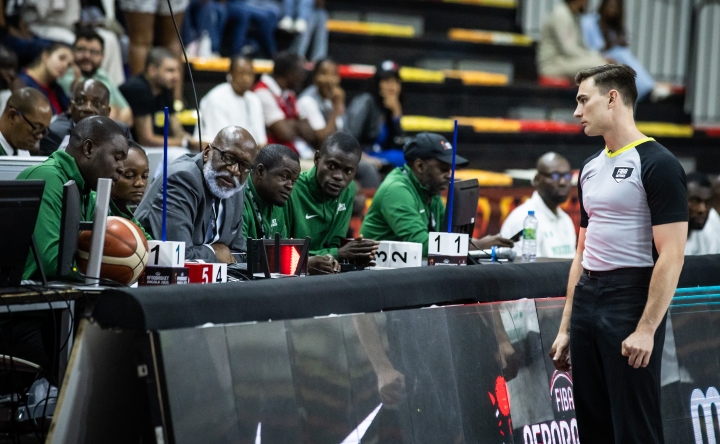FIBA's Global Refereeing concept is part of an ongoing initiative aimed at developing a unified global training program and enriching the experience of elite program referees.

MIES (Switzerland) – FIBA's Global Refereeing concept is creating a new era of interregional cooperation by nominating referees to regional competitions outside their “home” continent. This "GlobeTrotter" program is part of a standard, ongoing initiative aimed at developing a unified global training program and enriching the experience of elite program referees.
The "Why" Behind the Program
According to Carl Jungebrand, FIBA Head of Refereeing, the program is a normal part of FIBA referee operations. The primary goal is to ensure an one-refereeing concept across all FIBA competitions, based on a single, global training program. "It's like putting money in the bank," Jungebrand said, explaining that the exposure and experience gained by referees will benefit them long-term and also facilitate growth in regional refereeing quality.
The program isn't a temporary initiative; it's the standard for FIBA today. This approach ensures referees are prepared for the diverse challenges of international play, regardless of where the competition takes place.

The Referee's Journey: Australian GlobeTrotters in Angola
For Australian referees James Griguol and Ruben Woolcock, the journey to the AfroBasket Men’s in Angola was a true "GlobeTrotter" experience. James's trip from Adelaide was a 30-hour marathon, while Ruben's flight from Melbourne took 22 hours. This extensive travel was just the beginning of a unique assignment.
Preparation and Team Spirit
Both referees emphasized the importance of preparation. James scouted teams and reviewed previous games to understand the style of play. Due to some scheduling changes, Ruben had a reduced pre-competition clinic, but he was still guided on several topics by top instructors.
Upon arrival, both found the group to be welcoming and supportive. James noted that many of the referees were familiar faces from previous events. Ruben echoed this, saying the special part of international officiating is creating connections with people who, despite living completely different lives, are united by their love of basketball.
On the Court in a New Environment
Working on a different continent presented its own set of challenges. James's biggest adjustment was the constant security presence, including police escorts to games. Both noted the different style of basketball. Ruben described the African athletes as some of the most athletic he’s ever seen, playing a "very fun, high-flying style of game which is sometimes chaotic and unpredictable but very entertaining to see." Despite logistical challenges, like power outages, the games were a highlight.

Cultural Learnings
The cultural differences were eye-opening for both Australians. James was particularly struck by the local mindset, reflected in mottos like "Hakuna Matata," which encouraged focusing on what truly mattered. Ruben noticed that the people of Angola were very relaxed, never in a hurry, and always smiling—almost the complete opposite of some Australians!
The Final Buzzer
For both Griguol and Woolcock, the most memorable moments came from working games with a full house. James had goosebumps hearing the national anthems before the final, which featured the host nation. Ruben described the crowd as the "wildest" he had ever experienced, with fans "playing drums and trumpets non-stop for two hours." The atmosphere was electric, a privilege they will never forget.
The GlobeTrotter program is more than just a logistical exercise. It’s an investment in a unified future for FIBA refereeing, equipping referees like James and Ruben with the experience, flexibility, and cultural awareness needed to excel on any court in the world.
FIBA
